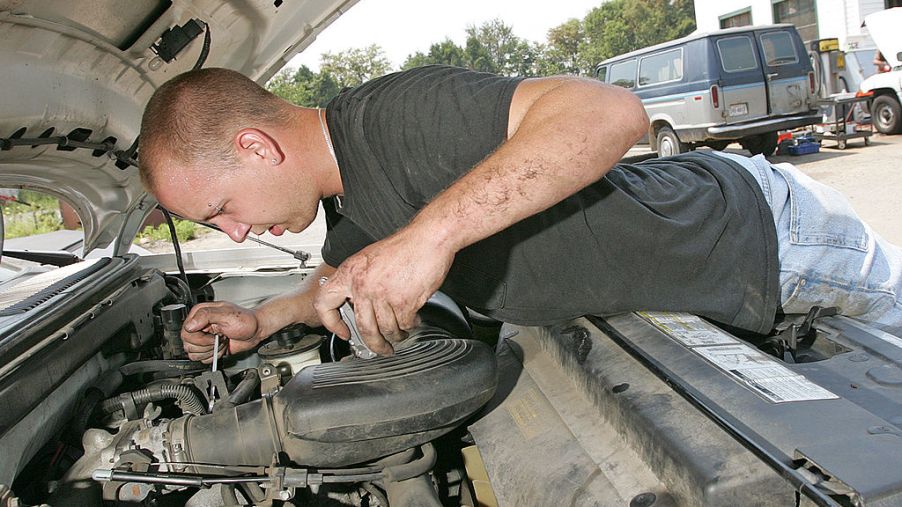
The 1 Scary Truck Sound You Never Want to Hear
We all know the feeling. You climb into your truck, start up the engine, and hear a scary sound instead of a reassuring rumble and purr. Regardless of the kind of sound it makes, your first course of action should be getting your truck assessed by a technician right away.
In the meantime, here are the scary sounds your truck can make and their meanings. Plus, we’ll review the worst noise you can hear coming from your truck.
Grinding, screeching, scraping
If your truck is a manual transmission and you hear what sounds like metal grinding when changing gears, your clutch may need to be adjusted or replaced. This grinding sound could also indicate major transmission issues. If you suspect this, you should get your truck checked out as soon as possible.
If you notice a screeching sound when applying the brakes, it typically means the brake pads are worn and it’s time to replace them. However, if it sounds more like clunking or grinding when you brake, then the system’s calipers, rotors, or both may need to be replaced — a bigger issue than replacing your brake pads.
Chirping and squeaking
If you hear a high-pitched noise coming from under your hood, there may be a problem with the drive belt, which runs several of your truck’s accessories. It may be loose or worn. If you suspect this, get the truck in for repairs before it breaks. If you don’t bring it in rather quickly, you’ll lose air conditioning, charging, engine cooling, and power steering.
The scariest sound your truck can make
You get in your truck, put your key in the ignition, turn it, and then you hear nothing. Or worse, you hear a faint clicking sound. Most assume this means your truck’s battery is either dead or isn’t holding a charge.
If you think you left the truck’s lights or audio system on, your battery is likely dead. You should be able to jumpstart it. However, you may want to check out the truck’s wiring if you rule out the battery. It’s also possible there’s another issue like a problem with the vehicle’s charging system.
If there are only certain times when the truck won’t start or other symptoms present, then one of the following things may be happening.
It cranks but won’t turn over
Make sure fuel is getting to the engine. If the fuel supply is getting the engine, then you may want to look at your spark plugs. Make sure they are getting the electrical spark they need to do their job.
The engine starts but dies shortly after
If there’s a carburetor in your truck, check its adjustment and choke. Make sure the choke closes and then reopens. If your truck has a fuel injection system, you’ll need to have a technician evaluate it.
The truck doesn’t start when it rains
Is there condensation inside the distributor cap? If so, you can try a mechanic’s solvent — an aerosol that cleans auto parts — from a local auto store. Turn the cap upside down and spray the solvent in it, swirl it around, and pour it out. This will help evaporate any moisture inside the cap.
Dry it by hand with a clean cloth that’s free of lint before replacing the cap. It’s important to use clean solvent and not gasoline, which can actually cause a fire if a spark ignites the gas fumes.
The truck won’t start on cold mornings
Just like an engine that starts but shortly dies, check the carburetor if there is one. If it’s not working properly or you have a fuel injection system, make an appointment at the shop.
Turn down the music once in a while when driving and listen to your truck. For example, if you catch the brakes squealing and fix them right away, your repair bill will be significantly less than if you wait until the brakes are grinding and the rotors are damaged. This is also true of many other scary sounds your truck can make.
Also, make sure to schedule regular maintenance for your truck. Regularly check for recalls and get your vehicle in regarding any you discover.


